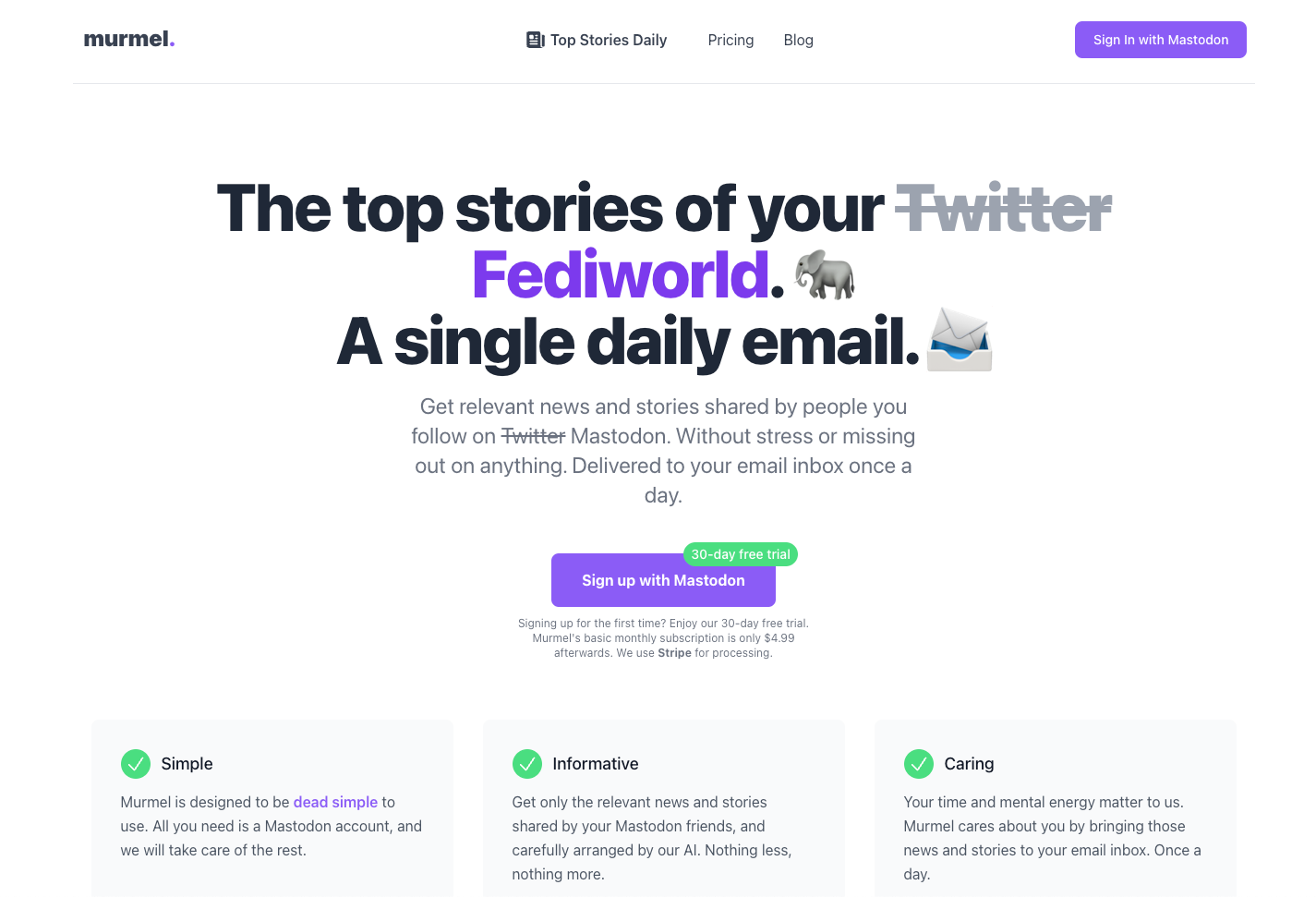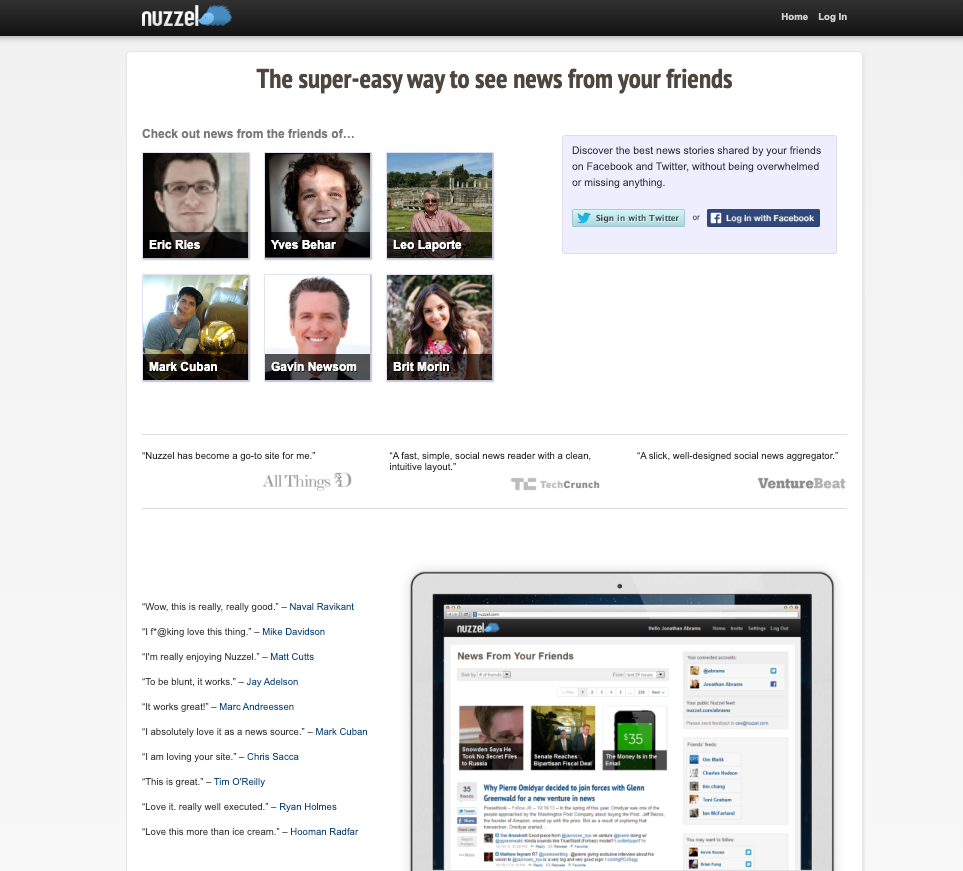Bringing Murmel to the Fediverse
Murmel is seeking a new home on the Fediverse. Our Mastodon beta is now live and ready to try.

This post originally appeared on Preslav Rachev's blog on May 24th, 2023
I am excited to share something my co-founder and I have worked on for the past few months. Murmel's Mastodon beta is officially live and awaiting enthusiastic people like you to try it. Just like its Twitter counterpart, Murmel for Mastodon collects news and stories, highly shared across one's home timeline, and delivers them in a single daily email digest.
The Fediverse, spearheaded by Mastodon, provides a glimpse at the future of social media - people-owned, decentralized, and not governed by the whims of a single person or entity. This resonates with our values and goals as a team and as individuals.
Walking down history lane
Murmel was born in the summer of 2021, shortly after Twitter acquired and closed Nuzzel - a popular web 2.0 page many people, including myself, used to check out while drinking their morning coffee. What made Nuzzel unique was the aggregation of popular news and articles shared by one's Twitter network. Those made it easy to glimpse what got talked about in social media circles without spending hours scrolling for scoops.

Nuzzel was especially popular among journalists, researchers, business people, and busy knowledge professionals. If we made a compelling alternative, we could build a valuable service, stepping on top of a sustainable business model.
Our core service, based on Twitter, quickly caught the attention of the groups we looked after. We got people willing to pay money for our product right at the start, which was more than reassuring. While we have yet to reach the stellar status everyone likes to talk about in Silicon Valley, it never was our intention. To this day, we want a product that grows organically, and as a small team, we prioritize keeping our tech footprint small and our expenditures low.
Since the end of last year, however, there have been dramatic changes at Twitter, which I cannot see myself tolerating for much longer. It looks like many intelligent and critically-thinking people thought the same way. Since November 2022, they have been fleeing Twitter in droves, causing a massive brain drain on the platform. Most chose different places across the Fediverse as their new social home on the Internet.
What comes next?
This exodus and everything happening across Twitter got us thinking. If smart people chose the Fediverse because they wanted to see a positive change across social media, it's likely to be an excellent place for us too. So, we decided to try Mastodon and created our entirely separate instance. For the record, our core Twitter-based product is still live and keeps attracting people all the same. However, with rules changing frantically, we cannot guarantee how long we will be able to keep it alive and kicking.
The Fediverse is a different beast. It brings a lot of new challenges but also opportunities. Except for a few large Mastodon instances, the network is distributed, decentralized, and based on an open protocol (ActivityPub). We believe that the Fediverse will continue to grow and improve naturally, which is what we hope to see happen with our product as well.
Every challenge is an opportunity.
One of the first things I got as a response from people when sharing my intention to create a Murmel integration for Mastodon was that "people there won't pay for such things. "I beg to disagree. We are not in the mid-2000s anymore. We have all contributed to the meteoric rise of behemoths like Google, Facebook, and Twitter. We've learned a valuable lesson - nothing ever comes for free; you either pay for it out of your pocket, or someone else pays for you spending time on the platform. You're either the customer or the product. I don't know about you, but I no longer like being the product.
It’s in this interesting turning point for decentralized social media that I think the Fediverse community will benefit greatly from a solution that both helps discover new people and content, but also, does it in a way that lets one live a life outside the screen.
Who is with us? Check out the Murmel beta, and let us know what you think about it.


